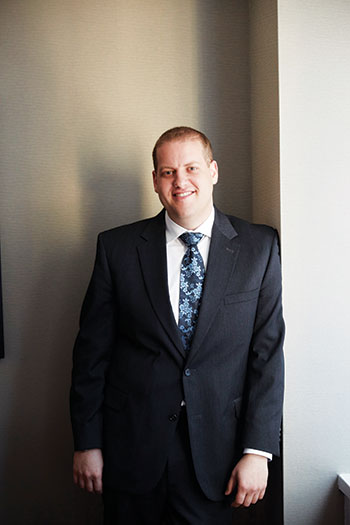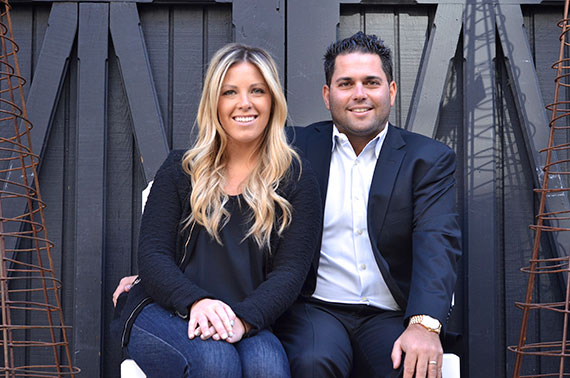They’ve brokered billions of dollars in deals, broken records, and launched companies. And they’ve all done it all in a cutthroat and unforgiving industry that’s not known for being kind to novices.
This month, The Real Deal polled dozens of sources to shake out the names of the newest crop of real estate’s 35-and-under rising stars. For most of them, getting to this point wasn’t easy, especially since they’ve come up during the recession and post-recession years, which derailed many real estate careers.
“If you can survive your first three to five years and find your niche, it can be a truly rewarding career,” said Jonathan Tootell, 32, a broker at Newmark Grubb Knight Frank and chairman of the Young Men’s/Women’s Real Estate Association of New York, which has about 450 members ages 23 to 44.
While there are undoubtedly plenty of other baby-faced players in the industry making their mark, this year’s batch of up-and-coming stars all stand out among their peers for the amount of business they’re handling, the high-level responsibilities they’re taking on and the impact their companies have made on the industry.
They join pros we’ve previously featured, like residential broker Kyle Blackmon, (then at Brown Harris Stevens, now at Compass); commercial broker James Nelson (then at Massey Knakal, now at Cushman & Wakefield); Silvershore Properties’ David Shorenstein and Jason Silverstein and Avison Young’s Jason Meister. Read on to find out who’s in TRD’s 2015 class of rising stars.

David Ash
David Ash, 34
Founder, Prince Realty Advisors
Things got off to a slow start for David Ash, who founded his boutique commercial brokerage in 2010.
“Basically, I ended up taking a leap of faith,” he said. “Unfortunately, it was not the right time.”
The family loan Ash had taken out to start his firm was running thin, and after a year of treading water in the midst of a down market that wasn’t handing out quick rewards, he gave himself a six-month deadline to close his first deal or shut down the business.
About four months later, in early 2012, his fortunes turned, and he put the first notch in his belt: repping both sides on the sale of a retail condo at 106-110 Seventh Avenue for $30 million.
Then he hit a groove. Within the next few months Ash closed two big off-market deals: Equity Residential’s $280 million purchase of JD Carlisle Development’s 301-unit rental the Beatrice at 105 West 29th Street, and HFZ Capital’s $62 million acquisition of 11 Beach Street, a condo conversion.
“His business model is really about ferreting out off-market transactions,” said Grant Greenspan, the head of brokerage at the Kaufman Organization, where Ash got his start in commercial real estate. “He’s very good at that and has the personality for it.”
Ash, who began his career in 2003 doing office leasing at the Kaufman Organization and then did a brief stint at Eastern Consolidated, said he was drawn to the sales side of the business when he learned the amount of a friend’s commission check. But there was a steep learning curve.
“Knowing leasing is one thing and knowing sales is another,” said Ash, adding the latter is “a lot more suited to my personal skill set.”
Now, his resume is littered with high-profile deals. Last year alone he was the sole broker when Madison International Realty paid $68 million for a 49.5-percent interest in Ark Partners’ corner property at 14th Street and Sixth Avenue. He also put together a $200 million deal for his former employers at Kaufman to lease four buildings in the Ring brothers’ portfolio. Ash swooped in while Gary Barnett’s Extell Development was in contract for the larger Ring portfolio, beginning negotiations with Barnett before Extell even closed on its transaction. That move got him a nomination for a REBNY Ingenious Deal of the Year award.
And to round out the year, he set a record when he negotiated a complex deal to create a $300 million retail condo for Inditex, the parent company of clothing store Zara, at 504 Broadway in Soho, setting a per-square-foot record for the neighborhood.
To date, his six-person firm has closed about $1.7 billion in deals, Ash said.
He added, “2014 was really the solidification that what we’re doing is not simply due to the market, but due to our understanding and the fact that guys really enjoy doing business with us.”
![]()
David Snider, 29
Chief operating officer, Compass
It’s been two years since the self-proclaimed revolutionary residential firm Compass broke onto the scene, and during that time COO David Snider has been behind the curtain running day-to-day operations.
Snider also led the charge on Compass’ A- and B-series funding rounds, raising $73 million, helping to deliver an eye-popping $360 million valuation to the company last summer.

David Snider (Photo: Dominique Pettway)
The Harvard Business School grad met Compass co-founder Robert Reffkin in 2009. Reffkin, then a Goldman Sachs vice president, was working on the side to raise $2 million to set up a non-profit.
“I made a mental note that if he did something on the for-profit side, I would be very intrigued,” Snider recalled.
Three years later, Reffkin called Snider and asked him to meet up. At the time, Snider was working at the asset manager Bain Capital and Reffkin and Compass co-founder Ori Allon only had a handful of employees. (Reffkin and Allon are both 35 and under, but are already well established so weren’t included as “rising stars” here.)
Since then, Snider’s been the point person for some of Compass’ biggest endeavors including its massive funding campaigns and its high-profile recruitment of big industry brokers. He was instrumental in Compass’ biggest coup to date: luring superstar broker Leonard Steinberg away from Douglas Elliman.
Steinberg said Snider has a “calm and balance many years beyond his age.”
“He didn’t underplay the fact that me leaving a highly stable, lucrative situation in my life was a huge risk,” he said. “It was not some cheesy sales pitch.”
Graham Brooks — whose .406 Ventures is an investor in Compass — said Snider provides a good balance between Reffkin, who comes from the world of high finance, and Allon, an experienced entrepreneur who has already sold companies to Google and Twitter. “David sort of rounds out the trio,” he said. “It’s his first time at the C-level. He does an amazing job at making the trains run on time while learning the real estate space. That’s tough.”
![]()

Ashley Cotton (Photo: Dominique Pettway)
Ashley Cotton, 35
Chief of staff and senior vice president of external affairs, Forest City Ratner Companies
Government affairs pro Ashley Cotton made the leap to the private sector three years ago, and quickly found herself in the middle of every significant project at Forest City Ratner.
Her employer is a company that goes big — from the decade-long megaprojects of the Barclays Center and Pacific Park, to redeveloping Long Island’s Nassau Coliseum and building part of the Cornell Tech Campus on Roosevelt Island.
“Truly everything that we’re building or that has been built is in my portfolio,” she said.
Perhaps because of that, Cotton is quickly rising through the ranks.
Less than a year after landing at the firm, she was promoted to CEO MaryAnne Gilmartin’s chief of staff, a position created specifically for her.
In that role, she oversees personnel and develops key communication strategies.
“Ashley is superb at it,” Gilmartin said of Cotton’s role in senior management.
Cotton’s trump card is her government experience. She got her start fresh out of college working for Andrew Cuomo’s establishment-defying campaign for governor in 2002, and cut her teeth on his race for attorney general in 2006. After working for him in Albany she spent three years in the Bloomberg administration on Deputy Mayor for Economic Development Bob Steel’s team. In that role she shepherded projects like the NYU expansion and the first Domino Sugar Factory redevelopment plans through the city’s approval process.
“She’s really smart, and she’s someone who’s got relationships on both the city and state level,” said Suri Kasirer, a top real estate lobbyist, who counts Forest City as a client. “She’s worked in politics and she’s worked in government. I always personally think that’s a great mix, because anyone who thinks there’s no politics in government isn’t being realistic.”
When Cotton jumped to Forest City in 2012, the firm was getting ready to open the Barclays arena. Cotton was immediately charged with overseeing the company’s wide-ranging hiring agreement with the community that called for bringing on 2,000 employees, many of them local.
Gilmartin said when Cotton started at Forest City she had no private-sector experience. But, she noted, that didn’t hold her back.
“Ashley stepped into Pacific Park at a challenging and tender inflection point when we were launching Barclays after a decade of litigation, economic turmoil and delays,” Gilmartin said. “In short order, she mastered an uncanny command of the material and molded her roles and responsibilities in a way that allowed her to take on a key position of leadership.”
![]()
Meir Milgraum, 28
Director of acquisitions and development, the Lightstone Group

Meir Milgraum (Photo: Max Dworkin)
David Lichtenstein’s Lightstone Group has amassed a development portfolio of $1.7 billion since it broke into New York City development in 2010.
As Lightstone’s director of acquisitions and development, Meir Milgraum has been on a tear since he joined the company in 2011, arranging acquisitions on a number of high-profile properties that stand out for their complexity.
“It’s certainly unusual to see someone his age handling projects like this, or at least someone who wasn’t born into a family that was doing a project,” said Luise Barrack, an attorney at the real estate law firm Rosenberg & Estis, who works with Milgraum on most of his deals. “He created all this value on his own.”
His deals include a complicated assemblage at 112-118 Fulton Street, which involved five buildings, seven different air-rights properties and buying out 32 tenants. Lightstone spent about $63 million on the properties, then turned around and sold them to the San Francisco-based Carmel Partners for $171 million.
Milgraum was on the front lines for all these deals, handling everything from acquisitions to tenant buyouts.
“We have a tremendous amount of capital, which helps,” he said. “We won’t shy away from a deal that’s priced right, no matter how many deals we have.”
Lightstone says it now has more than 2 million square feet under development, making it one of the busiest firms in the city.
For his part, Milgraum got his start in development at Triangle Equities, where he worked for a year before moving to Pink Stone Capital for 18 months. At Pink Stone he bought the distressed note at 111 Washington Street for $48 million. The firm is now shopping the property for $265 million.
Milgraum has also been at the forefront of bringing Marriott’s millennial-focused Moxy flag to the city at a former office building at 36th Street and Seventh Avenue that that firm is repositioning, and at a development site on West 28th Street.
“He has had a tremendous hand in our growth in New York, spanning hotels and residential properties,” Lightstone President Mitchell Hochberg said of Milgraum.
Milgraum said he won’t get into a deal unless he can buy it for 30 to 40 percent below market rate. But he won’t divulge his method for reaching that point. “That’s my secret.”
![]()
Michael Mandel, 32
Co-founder and CEO, CompStak
There are about 200,000 commercial lease deals logged in the online database CompStak these days, but it wasn’t always that way. Much like a social network, Michael Mandel’s brainchild needed to reach a critical mass before it could take off.
“I have memories of sitting on the couch in my apartment calling all my friends and colleagues within the industry … and saying, ‘Hey, I’ve got this site with all these comps,’” recalled Mandel, co-founder and CEO. “‘Do you want to send one and help build it up? Hey, why haven’t you logged in yet?’”

Michael Mandel
“Until eventually, at some point, it just started working on its own.”
The site crowdsources leasing information, enticing brokers to submit information on their deals in exchange for access to other leases.
Since 2012, when it was launched by Mandel and co-founder Vadim Belobrovka, CompStak has grown massively, now including 200,000 “master comps,” which involved vetting roughly 1 million submissions from brokers and landlords. Today, the company counts some of the biggest names in the industry as customers, including Tishman Speyer, the CIM Group and Beacon Capital. And, in just a short amount of time, sources say, it has become as essential to brokers as the more established industry giant CoStar, which provides a broader set of information on commercial properties.
Mandel’s achievement is all the more impressive considering the doubters who thought creating a central reservoir of commercial leases was unthinkable. The sector is notoriously opaque — for years brokers have simply passed lease information to each other by word of mouth.
“Everyone thought it was crazy. Brokers are so cagey with their information. We all kind of laughed about it,” said Michael Plavin, a vice president at the tenant-brokerage Cresa, who worked with Mandel at Grubb & Ellis. “Here we are a few years later, and you don’t see a broker in New York City who doesn’t have it open on their screen.”
Mandel, who was the 2007 Rookie of the Year at Grubb & Ellis, said the company has raised more than $10 million in funding and grown to 45 employees.
The firm, which started in New York, has built up a database of comps in 14 major markets and is getting ready to launch in Denver in early April. The next move, Mandel said, will be to plant a flag in London.
“In the past, we’d launch one market at a time,” he said. “Now, the strategy is a bit different. Now we’re eyeing dozens of markets at a time.”
![]()

Jed Wilder and Lindsay Krantz Tobias (Photo: Tobias Truvillion)
Jed Wilder, 28, and Lindsay Krantz, 27
Rental brokers, Citi Habitats
An average of five apartments each week: that’s the number of units the top-producing team at Citi Habitats rented last year.
In fact, the Wilder Team, the betrothed duo of Jed Wilder and Lindsay Krantz, was named the 2014 Team of the Year for rentals at Citi Habitats, the biggest rental firm in the city. That put them on top of 690 other agents.
For the year, the duo brokered 272 leases and seven sales valued at a combined $16 million, according to a company spokesman. On the rental front, the team’s dollar volume was 23 percent higher than the second ranked team.
Wilder, who worked in commercial brokerage at Halstead, and Krantz, who had a job at a wholesale jewelry company, decided to give residential brokerage a shot in 2012. They started working together at Citi Habitats and found they were pretty good at it.
“Basically, we started off on fire,” Wilder said.
They rented about a dozen apartments per month in their first few months in the business, an accomplishment the two attribute to their aggressive posting of listings on websites such as Craigslist and Naked Apartments.
The duo quickly carved out a niche on the Upper East Side, gaining exclusive rental listings with five different landlords for more than 325 apartments.
Meanwhile, their sales included closing a Fifth Avenue co-op late last year for $3.9 million. And while they’re looking to grow that side of the business, Wilder said, they’re not looking to stray too far from their bread and butter.
“We don’t want to get away from rentals because …,” he said, before Krantz chimed in and finished his sentence, “… we’re good at it.”
![]()
David Kornmeier, 34
Broker, Brown Harris Stevens
Soft-spoken and mild-mannered, David Kornmeier is reminiscent in a number of ways of former BHS broker Kyle Blackmon.
Blackmon, who was featured on TRD’s 2011 list of young up-and-comers and jumped to Compass last year, is one of the city’s top residential agents and known as a quiet Southern gentleman.
Kornmeier is cut from a similar cloth. He’s currently the highest-producing young broker at BHS, ranked in the top 3 percent at the company.

David Kornmaier (Photo: Richard Caplan)
“He was cool, calm and collected,” said Julie Perlin, a broker at Stribling & Associates, who repped the buyer in a $4.5 million Flatiron District this year, in which Kornmeier repped the seller. “You don’t find a lot of brokers who say ‘I love doing transactions with another broker.’ They usually have more negative things to say.”
And it’s not just that he’s a polite guy.
To date, Kornmeier has closed about $500 million in sales, he said, including high-water marks such as a $19.5 million Fifth Avenue apartment and a boutique Midtown hotel for $28.6 million.
In 2012, the Wall Street Journal and REAL Trends ranked Kornmeier the No. 10 residential agent in Manhattan and No. 50 in the United States for total sales volume.
That year he also grabbed attention when he sold a $14.5 million townhouse on West 74th Street, setting a per-square-foot neighborhood record for a home not on a Central Park block.
Kornmeier got his start as an assistant to BHS veteran Wolf Jakubowski.
He said he learned to be disciplined about his price points, and picked up a few other lessons.
“I look young; I sound young. I am on the younger side. For a long time I was very concerned I didn’t fit a particular profile: I was ‘too young,’” he said. “I was talking to my dad about it one day when I was starting out. I asked him, ‘What should I do about it? Should I answer the phone in a deeper voice?’”
“I think there are a lot of cowboys in this business, and you have to be honest and straightforward to do really well.”
![]()

Josh Schuster (Photo: Max Dworkin)
Josh Schuster, 31
Partner, DHA Capital
Josh Schuster, founding partner at the mid-market development firm DHA Capital, has been on a “road show” as of late, travelling to the Middle East and Hong Kong as he seeks to raise the company’s first fund of $50 million.
“We’re raising a sponsor-capital fund of $50 million,” said Schuster, who said the financing will allow the firm to grow its current development pipeline to $1.5 billion from about $400 million.
Projects in the works now at DHA include a 280-unit rental building at 535 West 43rd Street, a 200-unit rental property at 64-75 125th Street in Harlem and 12 East 13th Street, a condo conversion of a former parking garage in Greenwich Village, with a penthouse asking $30.5 million.
Before launching his firm with partner Dan Hollander, a former Clarett Group executive, the 31-year-old spent seven years working for Jason Halpern’s JMH Development in Brooklyn. In that position he led the redevelopment of a warehouse at 184 Kent Avenue into 340 rental units.
The project earned a Building Brooklyn Award in 2011 from the Brooklyn Chamber of Commerce for adaptive reuse. Jared Kushner, with partners LIVWRK and the Rockpoint Group, recently bought the building for $275 million.
Schuster also co-founded a non-profit called the Bicol Clinic Foundation, which helps build medical facilities in places like the Philippines, Nepal and Haiti.
And, he’s the youngest member to join the board at Baruch College’s Steven L. Newman Real Estate Institute, where he sits alongside industry pros Barbara Corcoran, Douglas Durst, Steven Roth and Larry Silverstein.
“There’s a variety of top-notch, quality individuals on our board,” executive director Jack Nyman said, “and he speaks fluently with all of them.”
![]()
Michael Graves, 35
Broker, Douglas Elliman
Michael Graves struck gold last year when he brokered one of the largest residential deals in the city: A $53 million full-floor apartment at Extell’s One57.
In November, Graves represented the buyer, identified only as Lapusny Inc., on the 6,240-square-foot, four-bedroom unit in the glassy tower. The transaction was the seventh largest residential deal in the city in 2014, according to Jonathan Miller, president of appraisal firm Miller Samuel. Graves said closing the 80th-floor unit “was an exhilarating experience.”

Michael Graves (Photo: Richard Caplan)
Property Markets Group principal Elliott Joseph, whose firm developed Walker Tower with JDS, called Graves the “most persuasive broker I’ve ever met.”
“When it comes to negotiating a deal he’s beyond comparison,” Joseph said. “He’s without a doubt the best broker I’ve dealt with ever.”
Joseph uses Graves not only on the company’s projects like Walker Tower, Stella Tower and 10 Sullivan, but also as his own personal broker.
Graves — who has appeared on several episodes of the reality TV series “Selling New York” — grew up in a real estate family.
His father was a hotel developer in the Midwest, and Graves said he did everything from bell hopping to front-office management and marketing.
A classical guitarist and composer whose work has been performed at Carnegie Hall and Lincoln Center, Graves got his start in real estate in 2009 at the brokerage Core.
He was a top producer at the firm, brokering more than $150 million in deals his first three years in the business, including setting several per-square-foot price records.
But the most surprising record may be his first sale, a $5.9 million condo at 240 Park Avenue South. The $2,532-per-square-foot purchase was a record at the time for Park Avenue South. But it might never have happened if he hadn’t taken a novel approach to showing the run-down penthouse, using a projector to display architectural renderings of what the apartment could look like with alterations.
“It kind of set the tone for the rest of my career,” he said. “I think it kind of helped me get off the ground.”
![]()

Justin Kitrosser and Jared Seeger
Justin Kitrosser, 34, and Jared Seeger, 32
Co-founders, Knightsbridge Park
In the world of new development marketing, it is becoming increasingly important for sellers to get noticed online, a notion that Justin Kitrosser and Jared Seeger, co-founders of the digital-marketing firm Knightsbridge Park, have seized upon.
“It’s fascinating, I think a lot of people wonder if with a $9 million apartment, people are actually going to the Internet to find condos,” Seeger said. “The answer, somewhat surprisingly, is, ‘Yes.’”
In order to deploy a marketing strategy aimed at well-heeled buyers, firms including Douglas Elliman, Corcoran Sunshine Marketing Group, Rudin Development and HFZ Capital have tapped Knightsbridge Park to craft their search-engine optimization strategies, handle online advertising and measure the efficacy of their campaigns.
Part of what Knightsbridge does, Kitrosser explained, is manage those “creepy ads that follow you around once you visit a site.”
“There are good ways to do it and there are bad ways to do it,” he said, explaining the better method involves limiting the amount of time an ad sticks around.
Kitrosser, who previously worked as a marketing director at Elliman and a project manager at Corcoran, and Seeger, who has a background in public relations, founded the company in 2010.
And it appears they’ve filled a void in the market.
Before Knightsbridge was born, no such service existed in the luxury consumer space, Kitrosser said. But, Seeger said, there’s a “sea change” in the industry in the last two years.
“It used to be just early adopters and people who had a digital background and could be convinced,” he said. “Now, clients are seeking us out.”
Knightsbridge has crafted digital campaigns for some of the city’s highest-profile projects, including Rudin Management and Global Holdings’ Greenwich Lane, the Alexico Group and Hines’ 56 Leonard and Macklowe Properties’ 432 Park Avenue.
“Four-three-two is its own animal,” said Richard Dubrow, Macklowe’s head of marketing. “In terms of publicity, there have been 400 articles about it internationally. [Knightsbridge] helps us see who’s coming to the site, and to a certain extent where they’re coming from. It’s a lot of work.”
Marci Clark, the director of branding and marketing for JDS, said Knightsbridge is “ahead of the curve” when it comes to helping firms have more control of their image online.
“It’s crucial to be deliberate in your online presence and functionality,” she said. “Owning digital space is increasingly important, as more homebuyers utilize online tools in their search, including for multimillion-dollar, ultra-luxury apartments.”
![]()
Dana Moskowitz, 34
President, EVO Real Estate Group
When billionaire investor Andrew Farkas’s global commercial real estate network NAI Global was looking for a member in New York City, it chose the EVO Real Estate Group, a tenant-focused brokerage and office-space manager.

Dana Moskowitz (Photo: Tobias Truvillion)
The person in charge of integrating EVO into that network is company President Dana Moskowitz. She also oversees a staff of about 25 brokers and runs day-to-day operations at the company, which leases and manages some 4 million square feet of commercial space.
She took the helm of the company in 2013, working with her father, Ira Fishman, and two other partners to rebrand the former Winoker Realty, which they purchased after the sudden death of founder David Winoker.
Jay Olshonsky, president of NAI Global, said the company felt secure knowing Moskowitz was at the helm.
“We were always very impressed with Dana. In particular, we thought she was certainly the next generation of a family-run business,” he said. “There are a lot of issues with succession planning when you’re talking about the aging of commercial real estate.”
Moskowitz said she absorbed commercial real estate while growing up. Her father spent 26 years as a broker at Newmark & Co. before heading to Winoker.
“It was dinner-table talk,” she said.
Correction: A previous version of this post inaccurately attributed the acquisition of two Lightstone Group projects in Long Island City and Gowanus. Kasra Sanandaji spearheaded acquisitions on those projects. Lightstone’s Meir Milgraum’s age was also misstated.
